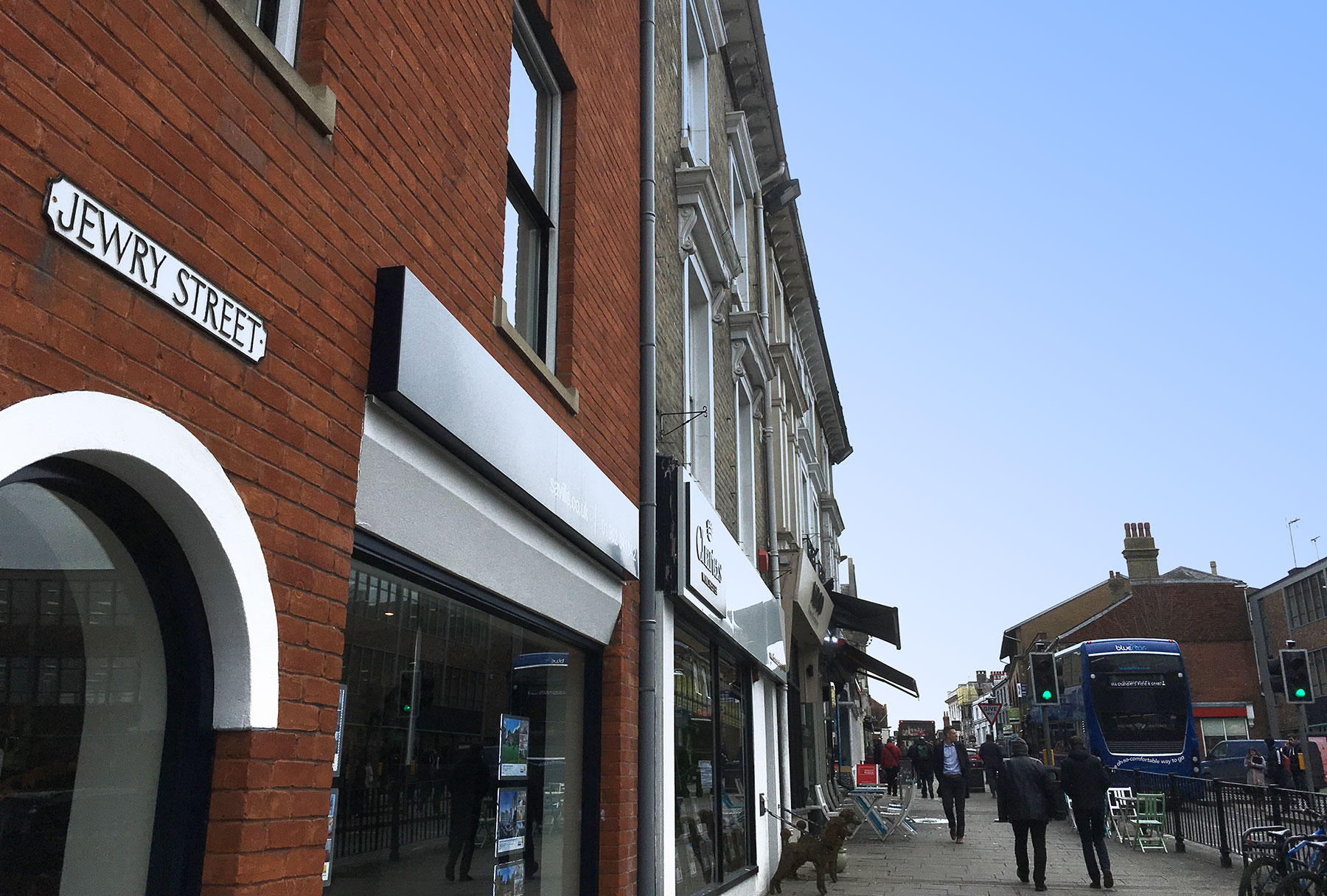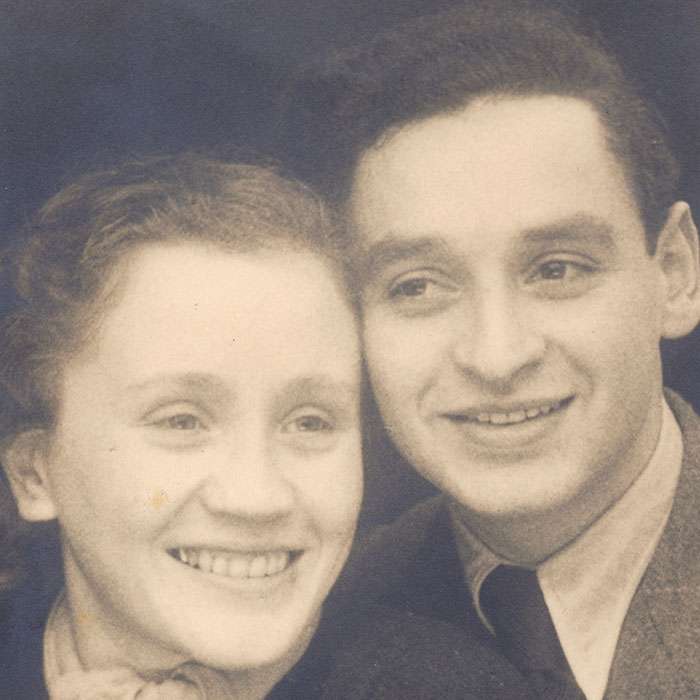Medieval Jewish Winchester
A collaborative project rediscovering Winchester's rich medieval Jewish history and heritage.

About the project
In the thirteenth century Winchester had a thriving Jewish community, concentrated in the area around the street known today as 'Jewry Street'. However, in 1290 this prominent community was expelled from England, and mentions of it appear to have been wiped from the history books. The Jews in medieval Winchester experienced increasing persecution in the 13th century; for example, Benedict, son of David of Oxford and the wealthy businesswoman Licoricia (known as 'Licoricia of Winchester'), was hanged for alleged felony, and the community was not given permission to bury him in the Jewish cemetery.
Since 2014, the University of Winchester has been supporting a local group that would like to see Winchester’s Jewish heritage promoted in the city’s museums and through dedicated visitor guides. However, as the project explores a largely missing aspect of the city's past, rekindling it involves a great deal of detective work. Initial investigations were carried out in 2014 by four student researchers from the departments of Theology, Religion & Philosophy, Archaeology & Anthropology, and History, as part of the University's WRAP (Winchester Research Apprenticeship Programme), alongside a local Jewish A level student. The idea stemmed from a journal article* that contrasted the Jewish history of York with a dearth of such in Winchester.
Public Engagement
For all the latest event information, see below under the Public Engagement tab.
The map and summary walk leaflet are provided by Winchester City Council. Find out more and download the Medieval Jewish Winchester trail map.
In adition to the map, a brochure containing further details on each of the locations in the walk has been developed. Download the Medieval Jewish Winchester brochure or read it online.
Acknowledgements
We are extremely grateful to Charlotte Andrasi, Adele Beston, Tracey Churcher, Cader McPhail, Toni Griffiths, Rachel Carver, Dr Alex Langlands and Dr Katherine Weikert for helping with the research. We are also extremely grateful to Danny Habel - see below.
Dedication
The walk is dedicated to Jack and Gretel Habel, the parents of Winchester entrepreneur Danny Habel, who played a key role in the project. Jack and Gretel fled Nazi Germany and found a home in Winchester. Jack came to England on a special agricultural visa; he applied for his girlfriend Gretel to be allowed to join him and a few weeks later, in March 1939, she too left Berlin and arrived in England. Jack rose to be chairman of the Chamber of Commerce and joined the Rotary; Gretel was on the committee of the Friends of Winchester Hospital and of VSO. They married in May and were moved out of London to the Hampshire countryside to spend the war working the land to help feed the war effort. For a young couple who had to leave behind absolutely everyone and everything they knew, going from Europe’s third largest city to a farm outside Winchester was a huge challenge.
At the end of the war, Jack began work for a haberdashery in Winchester, but after a few months there he decided to set up on his own, making mattresses and reconditioning upholstery. Gretel had learnt skills from her mother who had been a seamstress in Germany so she was able to assist in the production in their small shop in Middle Brook Street, Winchester. From these beginnings the Habel family became established and both Jack and Gretel became very active in community life in the city.
Gretel’s mother was one of a handful of Jews who survived the war in Berlin. She came to Winchester in 1946 and lived with her daughter until her death in 1968. Jack and Gretel's son Danny remained in Winchester to continue the family business.

Jack and Gretel Habel in 1939
Further information
Contact us
Email us or contact Dr Christina Welch, Reader in Theology, Religion and Philosophy.
Public Engagement
Resources
The map and summary walk leaflet are provided by Winchester City Council. Find out more and download the Medieval Jewish Winchester trail map.
In addition to the map, a brochure containing further details on each of the locations in the walk has been developed. Download the Medieval Jewish Winchester brochure or read it online.
Guided tours are given regularly. The next one will be on 3 August - find out more.
Previous events
21 May 2023: Licoricia of Winchester: Heritage and Memory of Medieval Anglo-Jewry
A collaborative event celebrating Licoricia of Winchester and Winchester's medieval Jewry, including a £5 walking tour and a free roundtable event.
A talk by Rebecca Abrams, author of Licoricia of Winchester: Power and Prejudice in Medieval England, as part of the University-sponsored Winchester Books Festival
30 May 2022: The role of money in Jewish-Christian relations, with guest speaker Professor Anna Sapir Abulafia. A hybrid event in the University's Foundation Lectures series.
MJW guided tours took place in May 2019, and as part of the Winchester Heritage Open Days in Sept. 2019 and 2020.
